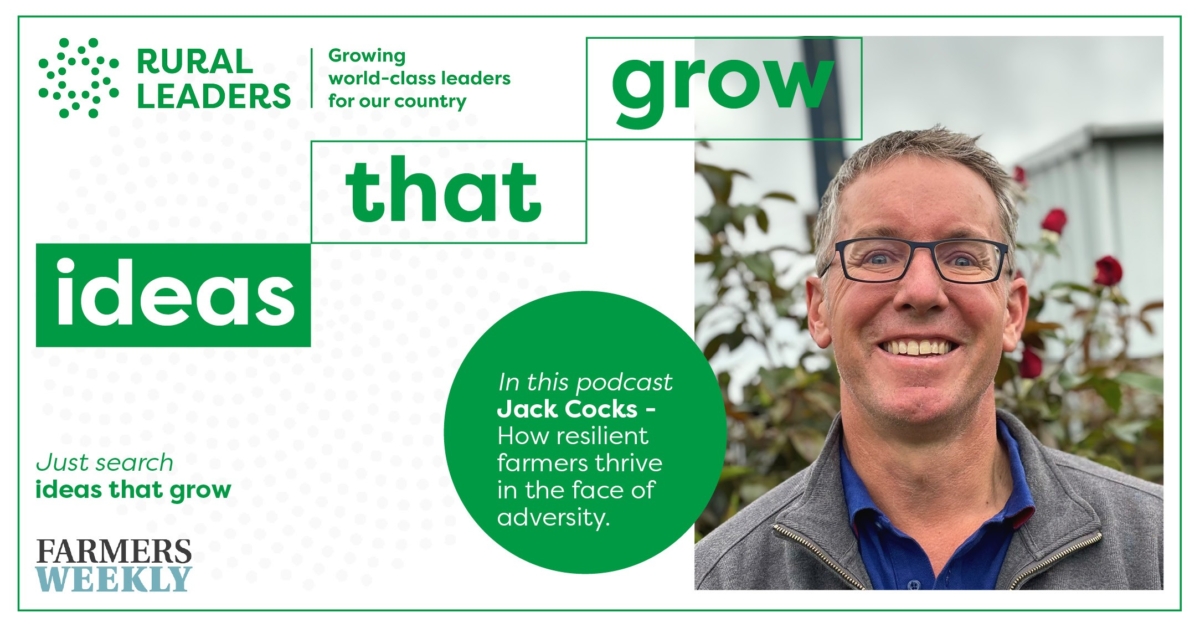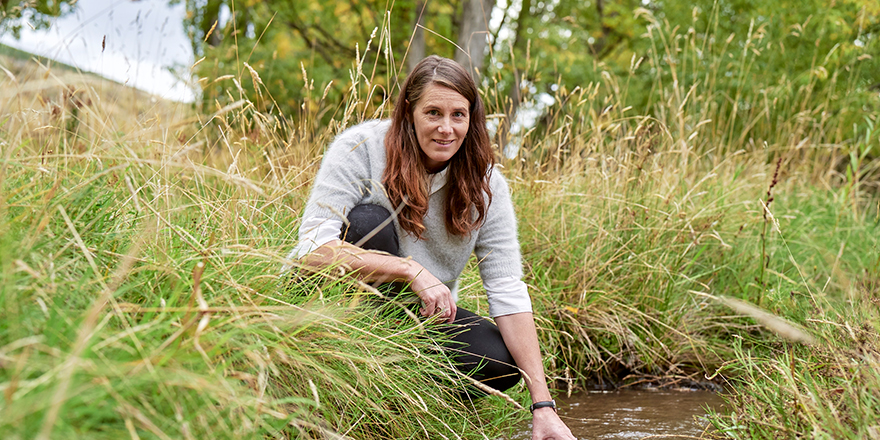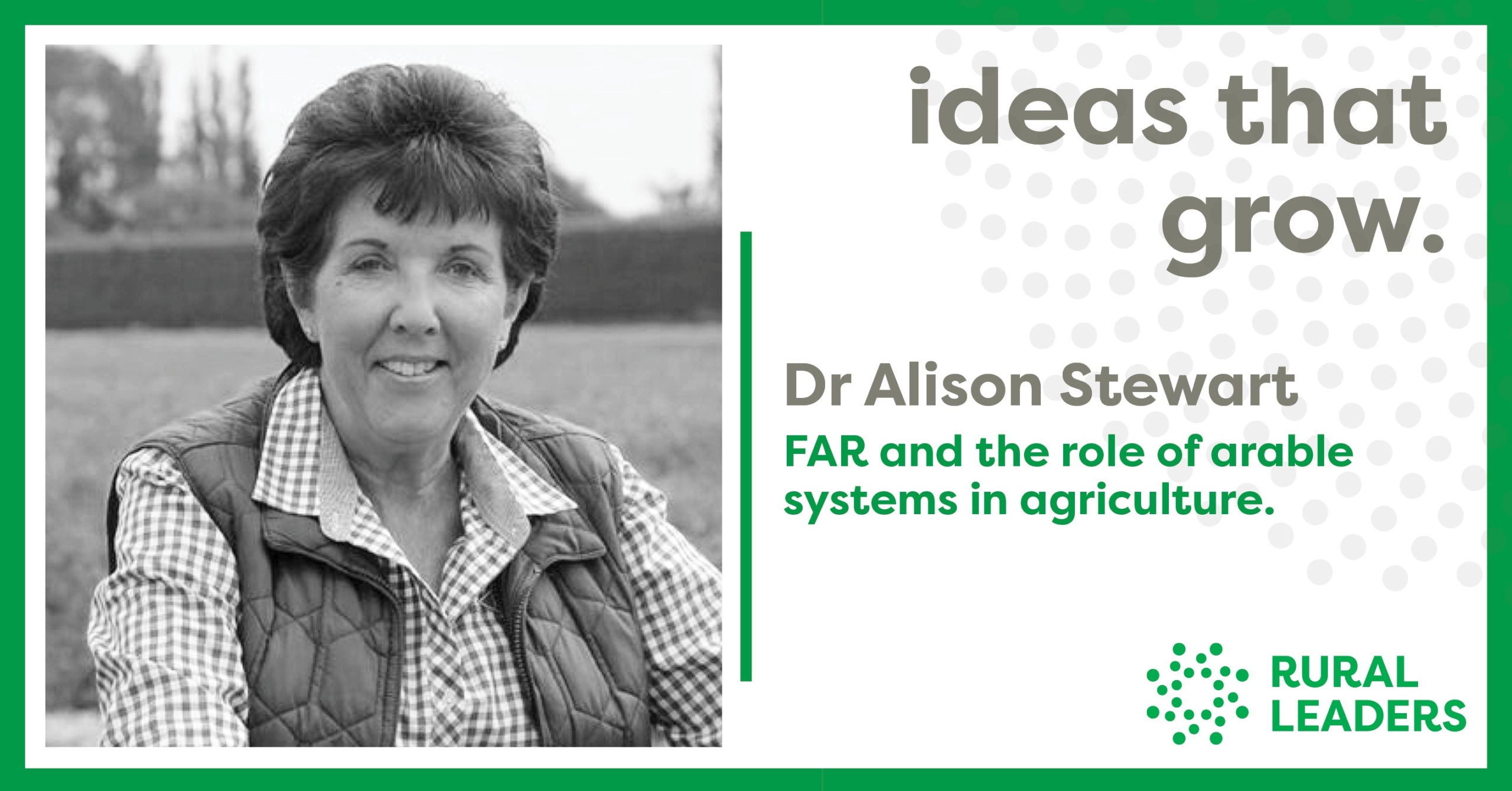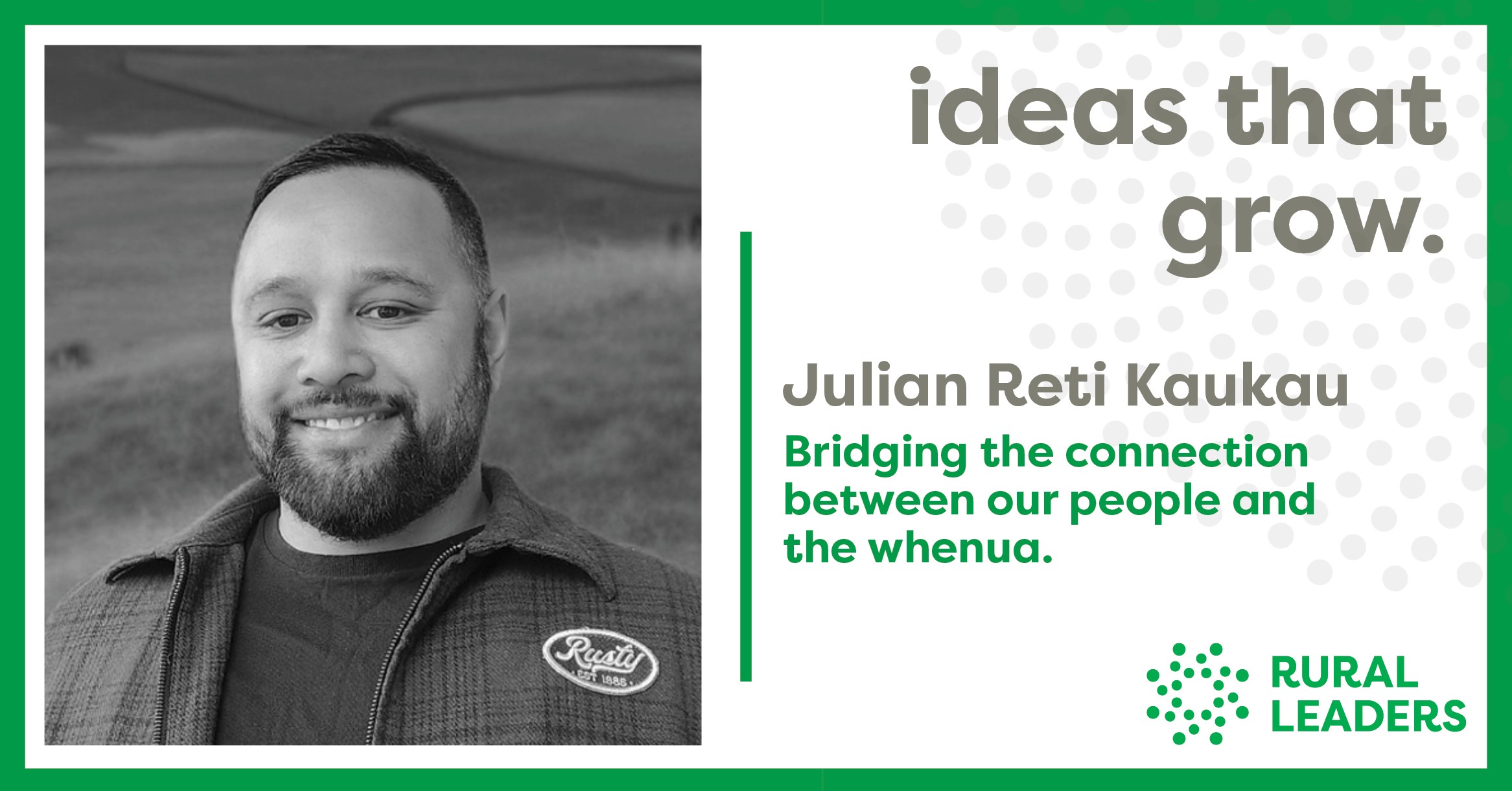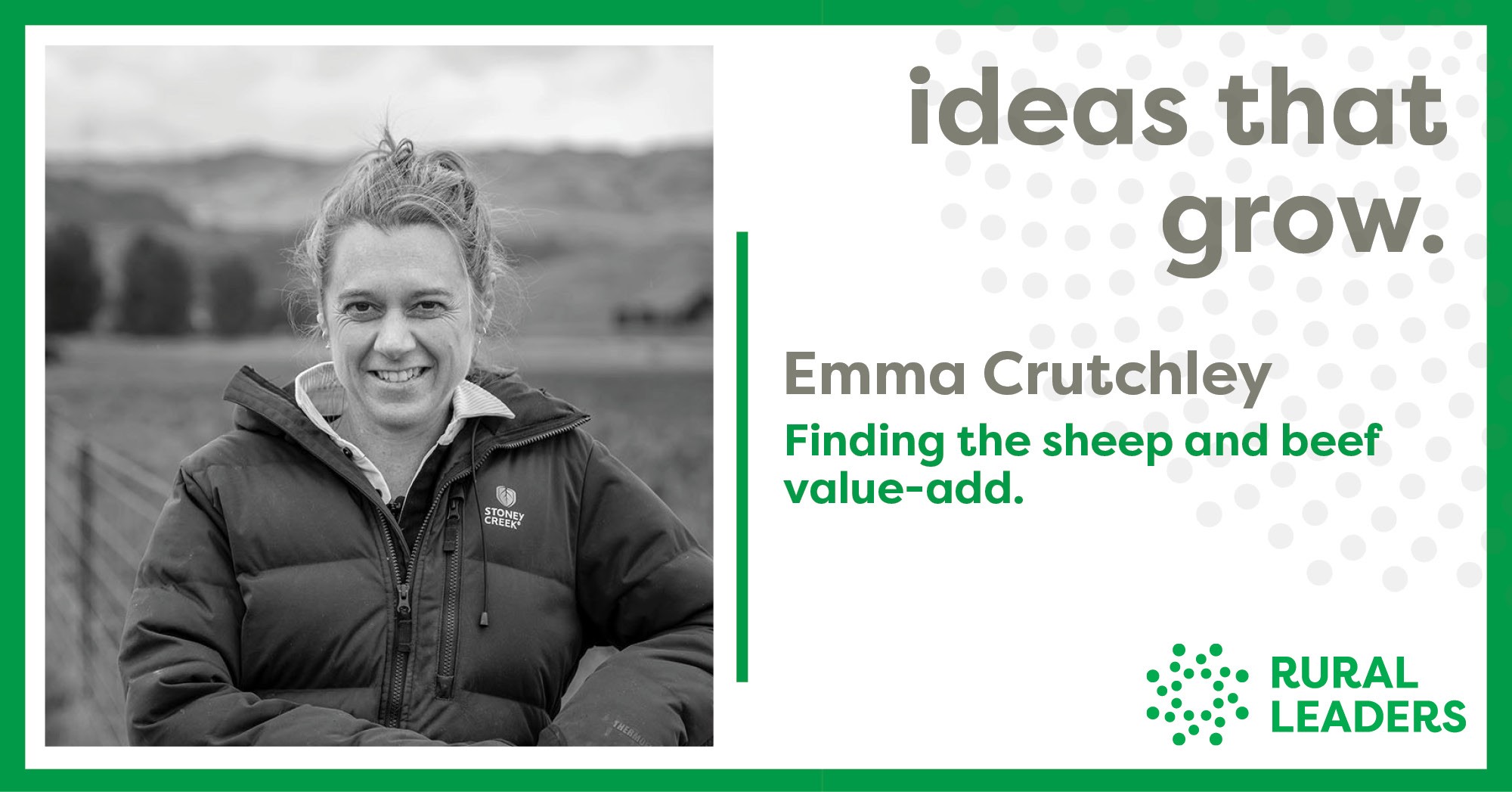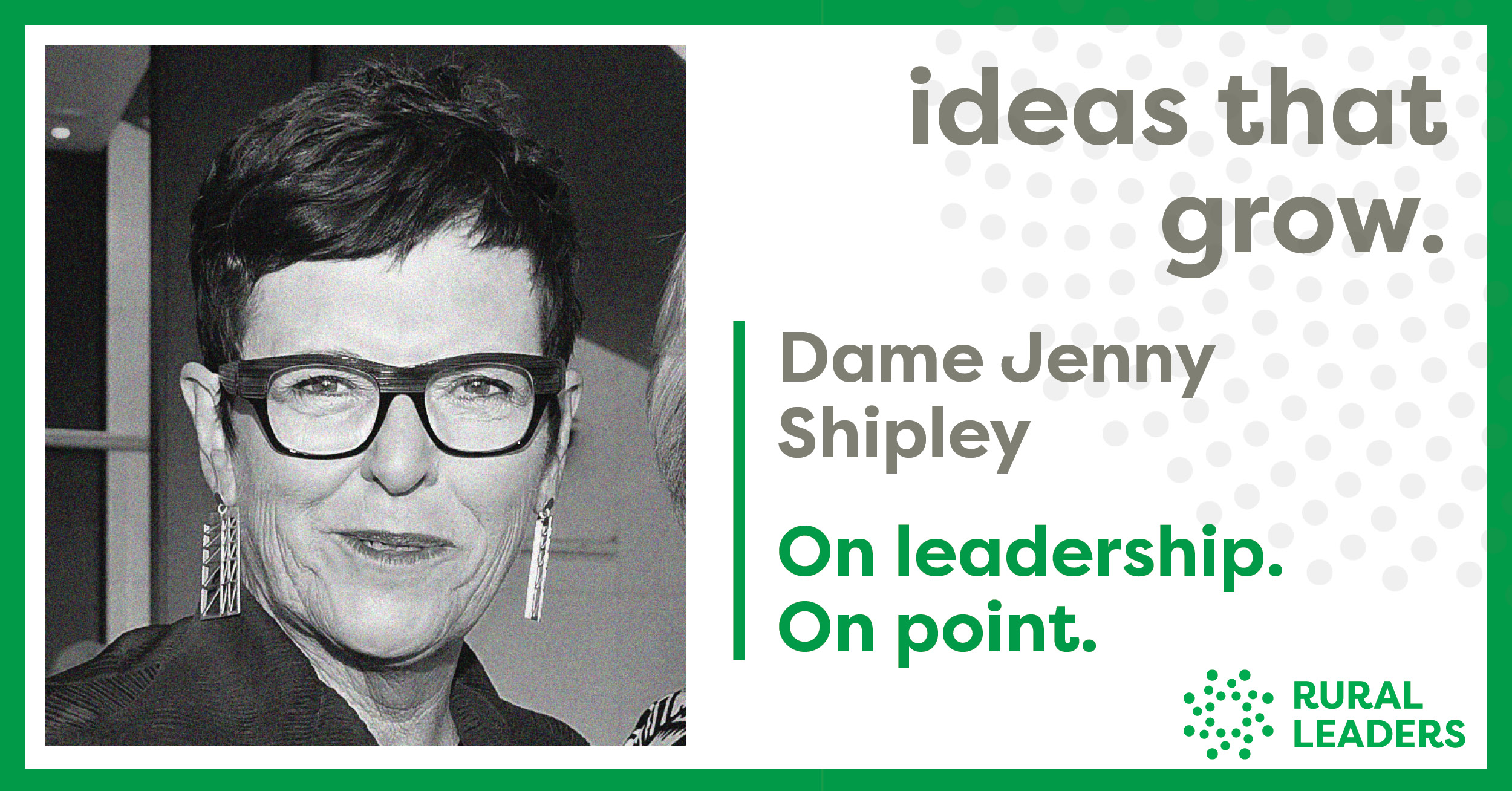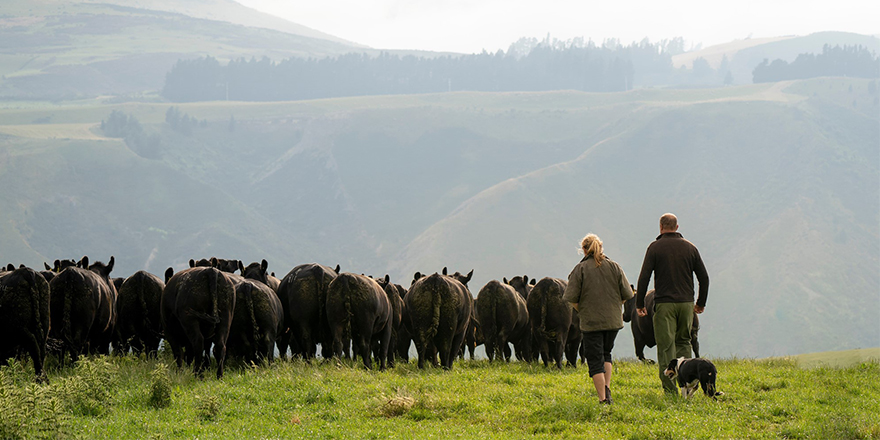In this podcast Jack Cocks, 2021 Kellogg Scholar talks to Bryan Gibson Managing Editor Farmers Weekly, about his research into resilience in the face of adversity.
Jack faced his own adversity in the form of a brain aneurysm that sparked a recovery journey spanning 15 surgeries over six years.
Jack works on Mt. Nicholas Station with his family. He shares the three things all resilient and thriving farmers have in common here.
Bryan Gibson – Managing Editor of Farmer’s Weekly.
You’ve joined Rural Leaders’ Ideas That Grow podcast. In this series, we’ll be drawing on insights from innovative rural leaders to help plant ideas that grow so our regions can flourish. Ideas that Grow is presented in association with Farmers Weekly.
Bryan Gibson, Managing Editor of Farmers Weekly.
You’re with Ideas That Grow, the Rural Leaders podcast. I am Farmers Weekly Managing Editor, Bryan Gibson. This week our special guest is Jack Cocks from Mount Nicholas Station. G’day Jack. How’s it going?
Jack Cocks, Mt. Nicholas Station.
G’day Bryan. I’m good, thanks. How are you?
BG: Yeah, good. Now, you were part of the Kellogg Programme two or three years ago, and you focused on farmer resilience, which is obviously a very important issue, but you’ve got a special reason for doing that, don’t you?
Well qualified to share insights on resilience.
JC: Yeah, I stumbled into it. It wasn’t something I really intended to be studying or to get involved in. Probably something I probably couldn’t define 20 years ago, what resilience was. But my wife and I have been farming here for about 16 years. About 11 years ago, I had a brain aneurysm caused by a rare form of inflammation between some blood vessels in my brain. Almost died, expected to die, had a number of complications, got a lot of time in surgery, in hospital, and a lot of surgeries over the next six years.
Then out of that experience, I got told I was a resilient character for bouncing back from adversity, and I didn’t really think I was that particularly resilient, and I didn’t think I knew what I was talking about – talking about resilience to a group. I felt everybody faces adversity.
Kate, my wife, and I were talking about this one morning over breakfast, and she said, why don’t you do the Kellogg Programme and study resilience? So, that’s how I got involved in Kellogg and how I ended up studying resilience.
BG: Tell us a little bit about what you found through your studies and how it made you understand your journey better or relate to it, or see any difference there, I guess.
Thriving in the face of adversity.
JC: I wanted to figure out how resilient farmers thrive in the face of adversity, which I use as a definition of resilience, that is, their ability to thrive in the face of adversity. So, to answer that question, I found five farmers throughout the South Island who had all faced major adversity, and they’d thrived in the face of that.
I sat down with each of for two or three hours, and we talked about their life pre-adversity, what it was they’d gone through, and then how they felt they’d been resilient. Out of that, there were some very strong similarities across those five farmers that all unknowingly, and independent of each other, had done the same things to be resilient and get through adversity. It all came together quite nicely in a simple little model.
Purpose, why, and connection.
BG: Because I guess often, we think about resilience as a moral quality, if you know what I mean, like courage or something like that. But it seems what you’re saying is resilience is something that anyone can do if they have the tools or know the process.
JC: Yeah, very much so. It’s something you can learn. Some people will be naturally more resilient than others and able to handle adversity. But it is something you can learn. I guess the model that came out of my Kellogg project was trying to develop some tools that people could utilise in their own lives to be more resilient.
So, when they faced the next challenge, and we all face challenges. They’re able to better handle that and get through that adversity.
BG: What is the model?
JC: So, there was three things that these five farmers all did. They all had very strong purpose, so they understood why they were doing what they were doing, and they were all very good at keeping connected. So, they surrounded themselves with people who could help them through adversity, and they all understood their wellbeing, or what they needed in their lives to be well and to be happy.
It came together visually in the form of a triangle with purpose at the top. That’s the ‘why’, connection being the glue in the middle of the triangle. That’s the ‘who’. And then wellbeing as the ‘what’ at the base of the triangle. That’s what came out of my Kellogg project. I’ve since done a couple of papers with a friend of mine, Joanne (Jo) Stevenson, a farmer in North Canterbury, and Hamish Gow at Lincoln University, which we’ve talked about and published in different journals.
Telling the resilience story.
BG: Tell me a little bit about that process. Are you from an academic background
JC: No, not at all. I’m probably quite academic for a farmer. I’ve got a postgraduate degree, but the first one was for the Institute of Primary Industry Management that Jo and I did. And then the second paper was for the International Farm Management Congress, which Jo, Hamish and I put together, and I presented that in Canada.
I guess where that came from, and this was Jo’s idea, Bryan, but one of the things that really came through when I’ve done probably 30 talks over the last five or six years about my health story, and resilience and the outcomes of my Kellogg research.
One of the things that came through to me was that people really resonate with the stories, the individual stories, my story of what I’d gone through from a health perspective and these five farmers I studied in the Kellogg Project.
So, Jo saw this, she’s got a background in resilience and found that there’s actually a lot of literature that suggests we can build our own resilience through understanding stories, through the stories we build ourselves on how we’ve navigated adversity, and hearing stories about how other people have navigated adversity.
So, if I hear a story about how you’ve gotten through a financial challenge or a family challenge, or whatever, and been really resilient, that might in-turn develop my own resilience and say, Oh, actually, I know Bryan got through that challenge by doing this. He’s come through the other side really well, so that suggests I can do the same. That most recent paper that I presented in Canada was based around that.
Resilience in a time of rapid change.
BG: Having presented internationally on this, are places like Canada, other places doing this work as well? Do they have the same take on it?
JC: I think it resonated certainly with the audience in Canada. It really did. I think resilience is something that increasingly is needed by everybody in the world. I think something that resonates with people, is that we all face adversity and we all need to be resilient. It’s not just me, in my family that’s had a health challenge. Everybody goes through challenges.
BG: Sometimes you hear people say a focus on resilience means you’re adapting people to deal with broken systems, and perhaps we should deal with the broken systems. But that’s simplistic as well, I guess. There’s always going to be obstacles, challenges in front of everyone, and it’s having the tools in the toolbox to be able to deal with them. Is that something you’d agree with?
JC: Yeah, I think so. There’s a lot of interpretations of resilience. Sometimes it’s being tough. Traditionally, it’s been bouncing back from adversity. But people that work in the resilience field now think because adversity is so common and constant, we’ve had COVID, climate change, a cost-of-living crisis. We actually need to be able to thrive in the face of adversity rather than just bounce back. So, that’s the current thinking from people that are working in the field of resilience.
Resilience is our ability to thrive in the face of adversity. But it’s a word that gets used a fair bit these days, and that’s possibly misinterpreted and mis-defined.
BG: I guess that’s something important as well. You mentioned we have seen resilience as returning to whatever we thought normal was or what was beforehand as quickly as possible. But to have an enduring effect, it’s actually about doing the right things and coming out stronger and more able to cope. And that might take longer and might look different for different people, I guess.
JC: Yes. I guess these three strategies that I came out of this Kellogg research, the idea was that they’re applicable to anyone, be it a farmer, be it a health challenge, or be it a financial challenge, you can apply these. It’s important to be resilient, to have a strong sense of purpose, a strong reason why your dairy farming in the Manawatu makes it easy for you to recover from a flood, or sheep farming in the Wairarapa makes it easier for you to get through a dry spell if you’ve got that strong reason why you’re farming where you are. And then connection and wellbeing are really important as well. But those three strategies, I think, are applicable to all farmers and everybody.
A sense of purpose.
BG: Now you’ve done all this work, the Kellogg Scholar Report, other papers written, obviously presented around the place. How do you feel now when looking back before you did all this through your health issues? Did you do what you now put on the tin, so to speak?
JC: Did I achieve what I wanted to by doing Kellogg?
BG: No, it was more talking about how you got through your challenge. Did you do it in a way that you would now prescribe as the way to do it?
JC: Oh, yes. Yeah, I see what you mean. I guess I’d been okay or all right. I’d been connected with other people. I had a huge network of support, my family and friends that helped me through that health challenge. I was probably reasonably good at understanding my wellbeing and figured out what I needed to do to keep happy and well.
People have asked, were you depressed or did you suffer from depression? And I got pretty annoyed at times with being in hospital, but I don’t think I did suffer depression. Those two things I was probably not too bad at, Bryan. The purpose was something that came out of the Kellogg research. These five farmers all had that strong sense of purpose, and that’s something I’ve tried to put in place in my life since. And that’s been a really valuable thing.
Kellogg and life on Mt. Nicholas Station.
BG: Those five farmers, what were their challenges? Just to put some context around how this resilience method can be applied. What had they gone through?
JC: So, one was a health challenge, one was climatic, one was financial, one was family, and then one was grief, personal loss. So, the five typical most common forms of adversity that farmers face, not all forms of adversity, but five of the more common forms. These farmers were from Southland to Marlborough and scattered in between. So, a pretty good spread across different farming systems.
BG: Different types of people, too, different age ranges and that sort of thing?
JC: Yeah, probably 30 years difference in age from the youngest to the oldest.
BG: I guess it just goes to show that if you have the building blocks there about how to navigate these things, it doesn’t matter who you are, where you’re from, you can apply them to your own situation.
JC: Yes, absolutely.
BG: The Kellogg Programme itself, it seems like a lot has come out of it for you. What was that like for you, doing the work?
JC: It was a fantastic programme. It’s very well structured, it’s well organised and facilitated. Great speakers, great content, a peer group that you go through with. So, for me, it was probably… It sounds a bit flippant Bryan, but it was probably a life-changing experience for me because I’d been pretty well in my mid-30s, and then almost died.
I’d been on a walking frame and had to regain my speech and learned to walk again multiple times to get to the level where I was able to contribute and take part in that programme. But it’s a great programme. I can’t really say enough good things about it.
BG: How are things for you now, Mount Nicholas? Obviously, a lot of work involved there. Things going okay?
JC: Yeah, and I think it’s pretty good. It’s been a pretty good climatic season for us over the last 12 months. It’s quite challenging financially as it is for all farmers in the country or all businesses, all people in New Zealand at the moment. But yeah, climatically, it’s been a good season for us.
BG: And if prices go down a bit further or the snow comes in or whatever the challenges are, you’ve got the magic triangle to fall back on, I guess.
JC: Yeah, that does help. It certainly does help. I wouldn’t advise this at all, Brian, to anyone, but you’re having a life, a near-death experience certainly puts things in perspective. When things are a bit turning a bit pear-shaped, you’ve still got your life and your health and your family. At the end of the day, you’re going to have challenges. That’s what I’ve really learned over the last 10 or 11 years.
Thanks for listening to Ideas That Grow, a Rural Leaders podcast presented in association with Farmers Weekly.
For more information on Rural Leaders, the Nuffield New Zealand Farming Scholarships, the Kellogg Rural Leadership Programme, the Engage Programme, or the Value Chain Innovation Programme, please visit ruralleaders.co.nz
